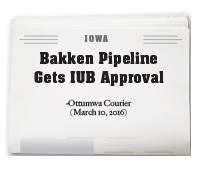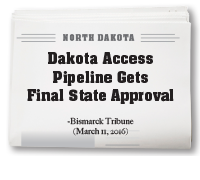In some communities along the Dakota Access Pipeline route, the economic benefits associated with construction activities have already begun to stimulate local economies.
A report from WLDS-AM in Jacksonville, Illinois describes a scenario of hotels and campsites filled to capacity as workers convene to construct the Dakota Access Pipeline, Ameren Rivers electric transmission line, and the Meredosia bridge project in West Central Illinois.
“The downside to it, is our hotels have been so full, some of them are actually turning away some of the business, where they might have a room here or there, but with all the other projects going on in the area, and with our weekend events, with baseball going on as well and wedding and reunions, we’ve been full on the weekends, too, says Jacksonville Convention and Visitors Bureau executive director Brittany Henry. “It offers more employment, with our lodging facilities being more full, that offers more employment opportunities in the area. Whether that’s indirect or direct, that’s more business coming into the Jacksonville area.”
We’ve long talked about these benefits and now they are finally beginning to show up along the route as businesses open their doors to an entirely new customer base. We can only hope these benefits will be open to everyone along the pipeline route very soon!




